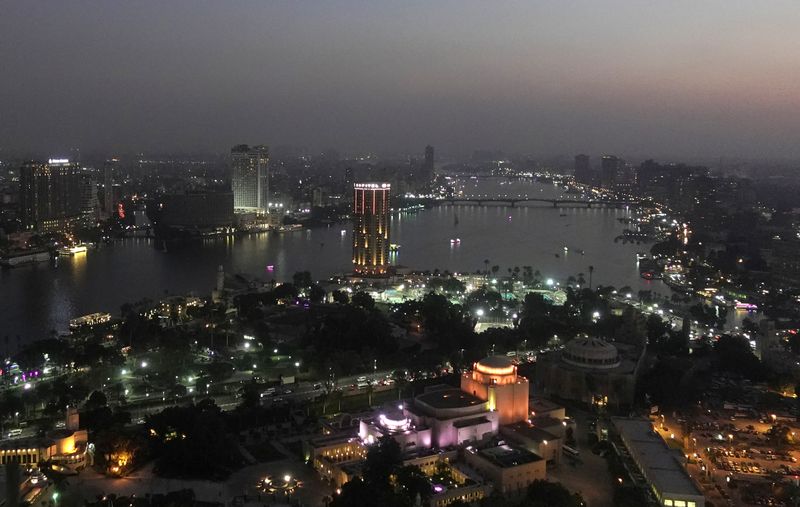CAIRO (Reuters) - Activity in Egypt's non-oil private sector contracted in December for the 25th straight month as inflation, a weaker currency and continued import controls dampened business, a survey showed on Wednesday.
The S&P Global (NYSE:SPGI) Egypt Purchasing Managers' Index (PMI) rose to 47.2 in December from 45.4 in November, but was still below the 50.0 threshold that marks growth in activity.
The sub-index for output improved to 44.8 from 40.8 in November and that for new orders rose to 45.5 from 41.4.
"According to survey panelists, lower activity generally reflected weak demand conditions, as rising prices led customers to make additional cuts to spending," S&P Global said.
The contraction was caused in part by higher materials costs and continued import controls, it added.
Egypt still has a severe shortage of foreign currency despite a 14.5% devaluation of the Egyptian pound in October and the announcement of a $3 billion support package with the International Monetary Fund. The shortage has tightened the flow of imports for factory and retail inputs.
The PMI's sub-index for overall input prices fell to 65.0 from November's 72.4 and that for purchase prices slipped to 64.3 from 72.4.
"Cost concerns led firms to reduce their headcounts and deplete input inventories in December, leading to an additional rise in backlogs of work," said S&P Global economist David Owen.

Inflation in Egypt jumped to a five-year high of 18.7% in November, the state statistics organisation reported last month.
The sub-index for future output expectations improved to 56.9 from 55.7 in November. It was the highest reading since June.